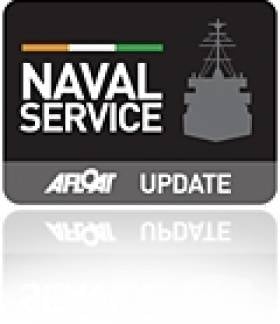Displaying items by tag: Irish Ambassador McIntyre
Homage Paid to Irish Founder of Argentinian Navy
#ADMIRAL BROWN- As Wexford is to host The John Barry Maritime Festival this summer, the father of the US Navy and commodore is held in the same league of Admiral William Brown, who founded the Argentinian Navy, who was remembered in a ceremony over the weekend in Buenos Aires, writes Jehan Ashmore.
The commemoration was to mark the 155th anniversary of William Brown's passing which took place at the Recoleta Cemetery, which was headed by Vice Admiral Carlos Alberto Paz, Chief of Staff of the Argentine Navy.
Among those attending were the Irish Ambassador, Mr. James McIntyre, the Chairman of the National Brownian Institute, Prof. Emilia Menotti, the President of the Naval Club, Vice Admiral Eduardo R. Llambi (Ret.) and City Council Officials.
The Navy General Directorate for Education marching band was also present, as well as Officer Cadets from the Admiral Brown Naval Lyceum (Reserve Officers' Academy). The Irish flag was carried alongside the host country by officers of the HQ Security Marine Bn.
For more about the event which included Santiago L. Aversa who represented the Irish branch of the Maritime Institute of Ireland (click HERE) and where its maritime museum in Dun Laoghaire is due to reopen early next month as previously reported on Afloat.ie
In 2006 the Naval Service 'flagship' L.É. Eithne (whose adopted homeport is Dun Laoghaire) under the command of Commodore Mark Mellett, made a historic first for the Naval Service when visiting Argentina and other South American ports.
In the same year two identical statues of the admiral were unveiled, one in Dublin's Docklands at Admiral Brown Way and Westport, Co. Mayo where the admiral hailed from.
Admiral Brown won victories against the Spanish and Brazilian fleets and as such he is regarded as a national hero, where in excess of 1,000 streets, 400 statues and venues such as stadiums (including football teams) schools, several towns, and a major city bears his name.
- naval service
- Argentinian Navy
- L.E. Eithne
- Commodore John Barry
- Admiral William Brown
- Commodore Mark Mellett
- M.I.I.
- Maritime Institute of Ireland
- Mariners Church Dun Laoghaire
- Maritime Museum Dun Laoghaire
- Dublin Docklands
- The John Barry Maritime Festival
- Admiral Brown Way
- Irish Ambassador McIntyre
- Westport Co Mayo
- Wexford Town






























































